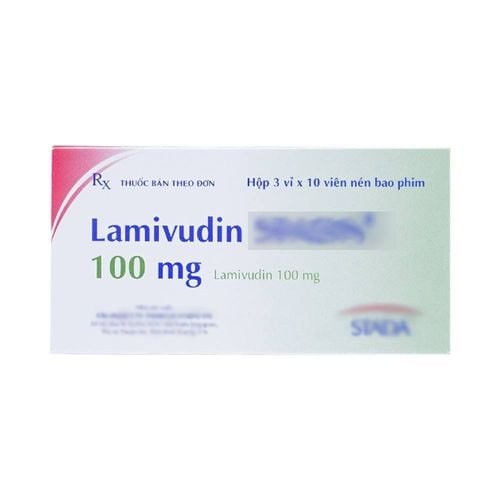This is an automatically translated article.
Trimethoprim is often used alone or in combination with other antibiotics to treat infections. In particular, it is often used effectively in acute exacerbations of chronic bronchitis, urinary tract infections...
1. What is Trimethoprim?
1.1. Trimethoprim belongs to which group of antibiotics? Trimethoprim is an antibiotic. Usually Trimethoprim can be used alone in the treatment of disease or in combination with the antibiotic Sulfamethoxazole to increase the effectiveness of treatment in some diseases.
Trimethoprim belongs to the group of antibiotics derivatives of Pyrimidine, has bacteriostatic effect.
1.2. Effects of the drug Trimethoprim Trimethoprim has the effect of inhibiting the enzyme dihydrofolate - reductase and the synthesis of DNA of bacteria, thereby achieving bacteriostatic effect. Trimethoprim is effective against pathogens such as E. coli, Proteus, Klebsiella, Staphylococcus saprophyticus, Streptococcus faecalis and many other coliforms (intestinal bacteria).
Thanks to the effect of killing bacteria, this antibiotic is indicated for treatment in some of the following cases:
Acute exacerbation of chronic bronchitis; Long-term prevention of recurrent urinary tract infections; Acute lower urinary tract infections caused by bacteria sensitive to trimethoprim; Pneumocystis carinii pneumonia; Prostatitis due to bacterial infection. Some cases are contraindicated when taking this drug:
Severe liver and kidney failure; Having megaloblastic anemia caused by folic acid deficiency; There is a history of hypersensitivity to Trimethoprim or any of the other excipients.
2. Usage and dosage of Trimethoprim
How to use: In the case of tablets should be taken on an empty stomach, at least 1 hour before or 2 hours after meals or use as directed by a doctor. The medicine can be taken with food if there is an upset stomach or discomfort when taking it on an empty stomach.
Dosage for adults:
Treatment of acute exacerbation of chronic bronchitis and urinary tract infections: Oral 100mg/time, twice a day, orally for 10 days or 200mg/time/day, for 10 days; Prophylaxis of recurrent urinary tract infections: Oral 100 mg/day; Pneumocystis carinii pneumonia: Oral dose of 20mg/kg/day. Usually combined with dapsone 100mg/time/day for 21 days; Prostatitis due to chronic bacterial infection: 400mg/day divided in the morning and evening. Usual dose in children:
Children 6 to 12 years old: Take 100mg/time, 2 times/day. In case of long-term prevention, take 50mg/day in the evening; 6 months to 5 years old: 50mg/time, 2 times/day; Take 25mg/day in the evening if prophylactic; Children 6 weeks to 5 months old: 25mg/time, 2 times/day. Dosage for adults with renal failure is as follows:
Creatinine clearance greater than 30 ml/min, the usual adult dose can be used; Creatinine clearance is 15 to 30 ml/min, halving the usual dose; Creatinine clearance less than 15 ml/min should not be used. In the case of intravenous drugs, they are used in medical facilities as prescribed by the doctor on a case-by-case basis.
3. Side effects of trimethoprim
Like most other drugs, Trimethoprim can also cause some side effects including:
Common are gastrointestinal, skin and mucosal reactions such as nausea, vomiting, rash, itching, rash, glossitis; Less common side effects include: Headache, blurred vision, dizziness, eosinophilia, leukopenia, diarrhea, loss of appetite; Rarely, increased liver enzymes, jaundice, biliary obstruction, hepatocellular necrosis, anaphylaxis, increased creatinine, serum urea, pseudomembranous colitis, stomatitis, megaloblastic anemia, decreased thrombocytopenia, hemolytic anemia, agranulocytosis, thrombocytopenia. The central nervous system may show aseptic meningitis, presenting with depression. On the skin may experience Stevens - Johnson syndrome, Lyell syndrome, increased photosensitivity.
4. Notes when using Trimethoprim
When using Trimethoprim, you should note:
When there are signs of side effects such as difficulty breathing, skin rash, edema, urticaria ... should stop taking the drug immediately and contact the nearest doctor. most for support; You should tell your doctor if you have a history of allergic reactions to any of the ingredients or any other condition; List other medications, including vitamins or supplements, to your doctor, as they may interact; Avoid alcohol while taking this medicine; There is not enough evidence for the safety of the drug in pregnant women. If it is absolutely necessary, the benefits and risks to the fetus should be carefully weighed. Breastfeeding women can use the drug because Trimethoprim accumulates in breast milk at concentrations too low to affect the nursing infant at normal therapeutic doses. In case of overdose: Signs of overdose when taking Trimethoprim may appear after taking the drug 1g or more. There are common symptoms including nausea, vomiting, headache, dizziness, depression, bone marrow depression, confusion... Need to be taken to a medical facility for timely treatment. Storage: The drug should be stored at room temperature, away from moisture and direct light. Do not store in high humidity bathroom or freezer compartment. Hopefully, through the article, you have learned the uses and notes when using Trimethoprim. This is an antibiotic, used under the prescription of a treating doctor, so you should not self-medicate without a prescription.
Please dial HOTLINE for more information or register for an appointment HERE. Download MyVinmec app to make appointments faster and to manage your bookings easily.













